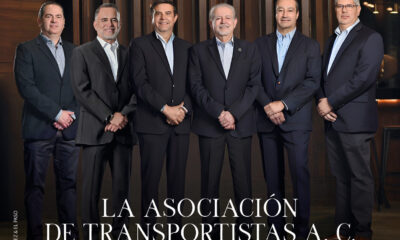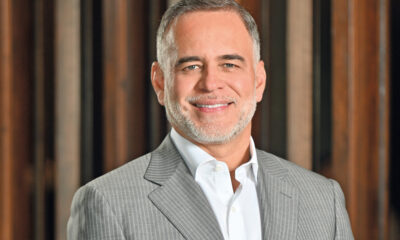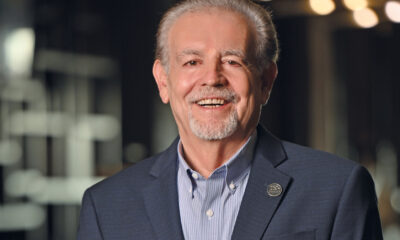El Diván
Lucía y Dulce, Centros de rehabilitación para mujeres
Publicado
5 años antesel
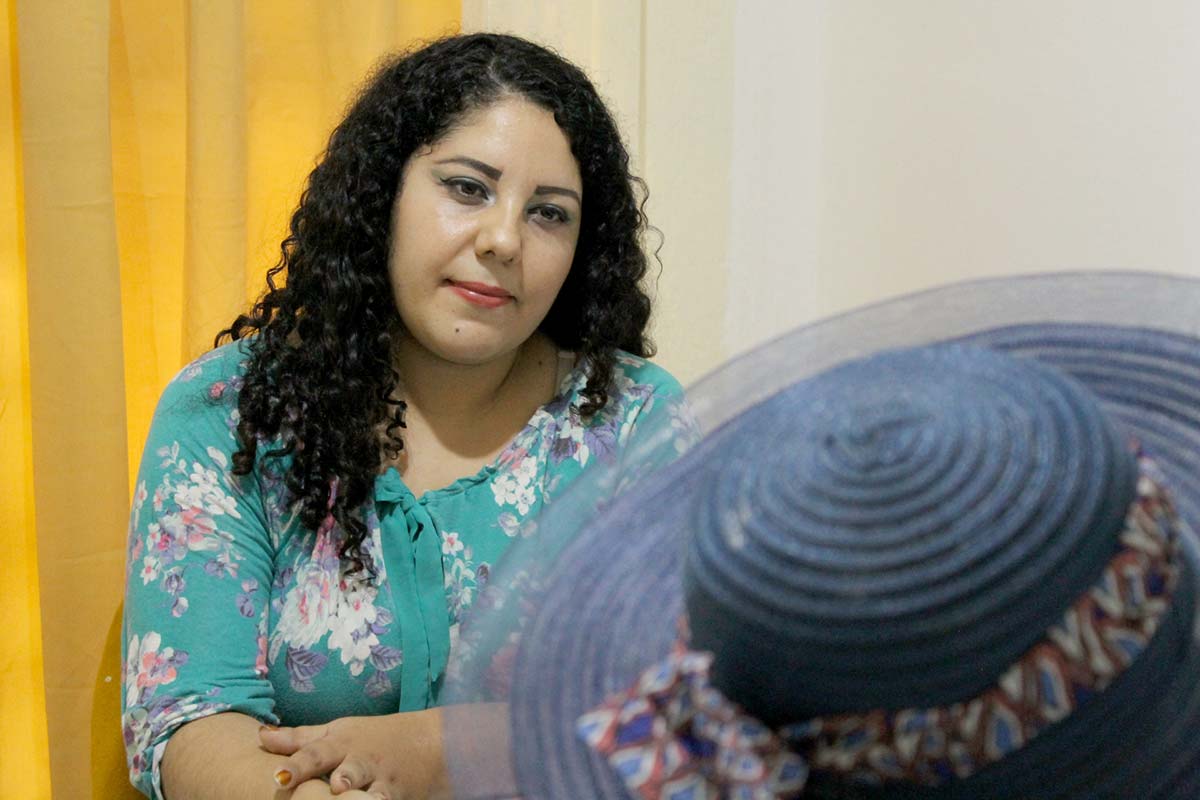
En medio de los preparativos para una fiesta mexicana, Lucía González abrió a Visionarias la puerta de Dame la Mano A.C., el proyecto más importante de su vida, creado a partir de la experiencia de una de sus hijas dentro del complicado mundo de las drogas.
El Centro de Rehabilitación Cristiano para Mujeres Dame la Mano A.C. cumple 3 años ofreciendo una alternativa a toda aquella que quiera dejar las drogas y escribir un nuevo futuro. La ayuda se brinda tanto para ellas como para sus familias, que en muchos casos se encuentran confundidas al no saber cómo afrontar la situación.
Ese fue el caso de Lucía, quien hace algunos años tuvo que lidiar con la adicción de su hija Dulce, y para quien ninguna de las opciones que encontró en ese momento le pareció suficiente.
“Siendo cristiana, buscaba un lugar de acuerdo con mis necesidades y las de ella para salir de su adicción”, cuenta la visionaria quien, en un momento de comunicación con Dios, decidió que utilizaría la casa de la que era propietaria en Ciudad Juárez para abrir un hogar para mujeres de todas las edades con problemas de adicciones.
“Surgió ese deseo en nosotras de poner un centro de rehabilitación, pero un centro acorde con lo que yo quería para mi hija en ese momento, un centro de rehabilitación que no solamente ayudara a las niñas, sino a las mamás, a los padres, a la familia, porque es una enfermedad familiar”.
Fue así como dejaron California, a donde se habían ido radicar, y regresaron a esta frontera para acondicionar la casa que ahora da albergue a 23 mujeres mayores de edad, las cuales además de seguir un tratamiento, ayudan con el mantenimiento, estudian, se preparan y conocen la Palabra del Señor.
Actualmente Dame la Mano A.C. cuenta con dos psicólogas, una trabajadora social, una doctora, consejeras y un grupo profesional y experto que está siempre para ayudarles, entre ellas obviamente Lucía o Tita, como de cariño la llaman sus “niñas”.
En el lugar les ofrecen alimentación -la mayor parte de ella vegana-, y valores, pero sobre todo amor, algo que en algunos casos no habían conocido en su propia casa.
“Las niñas vienen muy rebeldes, con desórdenes, vienen muy agresivas, por lo que nosotros tratamos de mantener el amor, el amor que les gusta, pero que está dormido u olvidado”, cuenta Lucía.
La inspiración
En esta aventura también participa Dulce, quien con su experiencia de vida inspira a otras mujeres a salir adelante.
Ella se desempeña como directora del centro y se encarga de todo lo administrativo, supervisa las actividades que ahí se llevan a cabo y hace que se cumpla todo en forma y orden. También funge como consejera y se encarga de buscar las donaciones, pero sobre todo y lo más importante, es la mano derecha de su madre, quien confió siempre en ella, incluso cuando no encontraba el camino.
“Ella siempre va a ser mi respaldo”, dice sobre Lucía.
En cuanto al centro, Dulce reconoce que no ha sido fácil, pues se han encontrado con una serie de trabas por parte de las autoridades para el funcionamiento de este espacio, mostrándose muchas veces insensibles ante la problemática. Sin embargo saben que lo padecido tendrá recompensa.
“El motivo de este lugar es que valga la pena todo lo que yo sufrí, todo lo que viví, que valga la pena el sufrimiento de mi familia, de mi mamá. No le hallaría yo caso a que Dios me haya salvado, me haya rescatado e irme a un trabajo secular y que ahí termine ya mi historia, no tendría sentido mi vida si así hubiera sido el desenlace”, recapacita Dulce, pensamiento que trata de transmitirles a las mujeres que apoya.
“Nos gusta transmitirles a las muchachas que su historia tiene un por qué. Hay propósito por el cual estás aquí, para el cual Dios te quiere salvar, no es para que vayas y tengas una vida normal, porque no somos normales, la persona que consume algo no es normal, por eso busca una salida”.
Testimonios
Muchos han sido testigos de los milagros que ocurren en Dame la Mano, entre ellos el de Ailyn, quien es madre de un niño de 8 meses, el cual nació durante su primera estancia en el centro.
“Yo consumía cristal, mi mamá me trajo porque ya andaba muy mal. La primera vez que me trajeron tenía 7 meses de embarazo y de aquí me llevaron al hospital a aliviarme, me ayudaron mucho”.
“La verdad yo estoy muy agradecida con ellas, para mi significan mi familia. Yo me quedo sorprendida de que todavía existan personas que en realidad me quieran ayudar de corazón. Yo voy a poner todo de mi parte para poder echarle ganas y pues yo las aprecio mucho y estoy muy agradecida con ellas”, comenta la joven madre.
También está Laura, quien al tocar fondo con la mariguana y la cocaína fue ingresada por su madre.
“Yo venía negada, yo no quería venir… aquí se me ha dado la ayuda que tanto necesité desde mi infancia, estoy demasiado agradecida. Tuve una recaída y me volvieron a aceptar. Aquí estoy en comunión con Dios y me quieren muchísimo más que en mi casa. Sin este lugar estaría más hundida en el alcohol y las drogas, y estoy cada día adelante, con la ayuda de Dulce y mi Tita”, dice la joven de 24 años, quien estudió enfermería y actualmente ayuda en la cocina.
Por su parte Leslie regresó al centro por su voluntad, luego de hablar con su consejera para pedir una segunda oportunidad.
“Yo ya no quería seguir en las drogas… llegué un jueves 11 de junio, me recibieron sin dinero, sin nada. Estoy muy agradecida porque me pasaron tantas cosas afuera y así me recibieron”. Ahora ella se esfuerza por recuperar a su hija de 2 años, a quien sólo ha visto una vez desde su reingreso.
“Yo pedí la ayuda porque sé que la necesito, sé que estoy mal, estando afuera nunca me voy a rehabilitar”. “Somos muy valiosas en este lugar”, finaliza.
Lucía de 33 años, es otra de las mujeres que llegó por su propia cuenta, ella regresó con el fuerte compromiso de dejar su adicción, y ahora también participa en las actividades de la cocina y se enfoca en su lado espiritual, el cual le ha ayudado a mantenerse firme en su propósito.
Mente y espíritu
Sandra Alvarado es la psicóloga de Dame la Mano y la responsable de las terapias (individual, familiar y grupal) de las mujeres que en algunos casos cuentan con un historial de abuso, abandono, criminalidad o familiares también adictos.
Sobre el lugar, la licenciada en Psicología asegura que además del tratamiento y el seguimiento que se les da, aquí son atendidas por personas con un sentido humano muy grande, por lo que cuando las pacientes tienen problemas afuera, ellas siempre quieren regresar.
“(Aquí) es un refugio, ellas vienen de la calle donde no hay nada, no hay nadie, por eso aquí se sienten acogidas”, menciona Sandra, quien coincide con Lucía en que “ésta es la antesala de donde tú quieres estar”.
* Para más información o hacer donaciones puede comunicarse al teléfono 656-406-5062.
Lucía and Dulce, Rehabilitation centers for women
In the middle of the preparations for a Mexican party, Lucía González opened the door of Dame la Mano A.C. to Visionarias, the most important project of her life, created from the experience of one of her daughters in the complicated world of drugs.
The christian rehabilitation center for women Dame la Mano A.C. turns 3 years offering an alternative to anyone who wants to quit drugs and write a new future. Help is provided both for them and for their families, who in many cases find themselves confused by not knowing how to deal with the situation.
That was the case of Lucía, who a few years ago had to deal with her daughter Dulce’s addiction, and for whom none of the options she found at that time seemed enough.
“Being a Christian, I was looking for a place according to my needs and hers to get out of her addiction”, says the visionary who, in a moment of communication with God, decided that she would use the house she owned in Ciudad Juárez to open a home for women of all ages with addiction problems.
“That desire arose in us to set up a rehabilitation center, but a center in accordance with what I wanted for my daughter at that time, a rehabilitation center that would not only help the girls, but also the mothers, the parents, to the family, because it is a family illness”.
This is how they left California, where they had gone to live, and returned to this border to prepare the place that now houses 23 adult women, who in addition to following treatment, help with maintenance, study, prepare and they know the Lord’s Word.
Currently Dame la Mano A.C. It has two psychologists, a social worker, a doctor, counselors and a professional and expert group that is always there to help them, among them, obviously, Lucía or Tita, as their “girls” call her with love.
In the place they offer food -most of it vegan- and values, but above all love, something that in some cases they had not known in their own home.
“The girls come very rebellious, with disorders, they come very aggressive, so we try to maintain love, the love that they like, but that is asleep or forgotten”, says Lucía.
The inspiration
Dulce also participates in this adventure, who with her life experience inspires other women to get ahead.
She works as the center director and is in charge of all administrative matters, supervises the activities and ensures that everything is carried out in a proper and orderly manner. She also serves as a counselor and is in charge of looking for donations, but above all and most importantly, she is her mother’s right hand, who always trusted her, even when she couldn’t find the way.
“She is always going to be my backup”, he says about Lucía.
As for the center, Dulce recognizes that it has not been easy, since they have encountered a series of obstacles from the authorities for the operation of this space, often showing insensitivity to the problem. However they know that what they suffered will be rewarded.
“The reason for this place is that everything that I suffered, everything that I lived is worth, that my family and my mother’s suffering is worth it. I would not find a case for God to have saved me, rescued me and gone to a secular job and that my story ends there, my life would not have meaning if that was the outcome”, Dulce reconsiders, a thought that she tries to share to them to the women it supports.
“We like to convey to the girls that their story has a reason. There is a purpose for which they are here, for which God wants to save you, it’s not for you to go and have a normal life, because we are not normal, the person who consumes something is not normal, that is why he looks for a way out”.
Testimonials
Many have witnessed the miracles that occur at Dame la Mano, including that of Ailyn, who’s the mother of an 8-month-old boy who was born during her first stay at the center.
“I used ‘cristal’, my mother brought me in because it was already very bad. The first time they brought me I was 7 months pregnant and they took me from here to the hospital to give birth, they helped me a lot ”.
“The truth is I’m very grateful to them, for me they mean my family. I am surprised that there are still people who really want to help me from the heart. I’m going to do everything on my part to be able to get well, and I appreciate them very much and I’m very grateful to them”, says the young mother.
There’s also Laura, who when hitting rock bottom with marijuana and cocaine was admitted by her mother.
“I was denied, I did not want to come… Here I have been given the help that I needed so much since my childhood, I am so grateful. I had a relapse and they accepted me again. Here I’m in communion with God and they love me much more than at home. Without this place I would be more sunk in alcohol and drugs, and I’m moving forward every day, with the help of Dulce and my Tita”, says the 24-year-old, who studied nursing and currently helps in the kitchen.
Leslie returned to the center of her own free will, after speaking with her counselor to ask for a second chance.
“I no longer wanted to continue on drugs… I arrived on Thursday, June 11, they received me without money, with nothing. I’m very grateful that so many things happened to me outside and that is how they welcomed me”. Now she is struggling to get her 2-year-old daughter back, whom she has only seen once since her re-entry.
“I asked for help because I know that I need it, I know that I’m wrong, being outside I will never rehabilitate myself”. “We are very valuable in this place”, she concludes.
Lucía, 33, is another woman who came on her own, she returned with the strong commitment to quit her addiction, and now she also participates in kitchen activities and focuses on her spiritual side, which has helped to stand firm in its purpose.
Mind and spirit
Sandra Alvarado is the psychologist at Dame la Mano and the person in charge of the therapies (individual, family and group) of women who in some cases have a history of abuse, abandonment, criminality or family members who are also addicted.
Regarding the place, the graduate in Psychology ensures that in addition to the treatment and follow-up that they are given, here they are cared for by people with a very great human sense, so when patients have problems outside, they always want to return.
“(Here) is a refuge, they come from the street where there’s nothing, there’s no one, that’s why they feel welcomed here”, says Sandra, who agrees with Lucía that “this is the prelude to where you want to be”.
* For more information or to make donations you can call 656-406-5062.
Te puede interesar
El Diván
Un viaje de Fe y Sabiduría: La Vida y el Legado de el Pastor Amador Valenzuela
Publicado
3 meses antesel
01/08/2025Por
Luz María Sotelo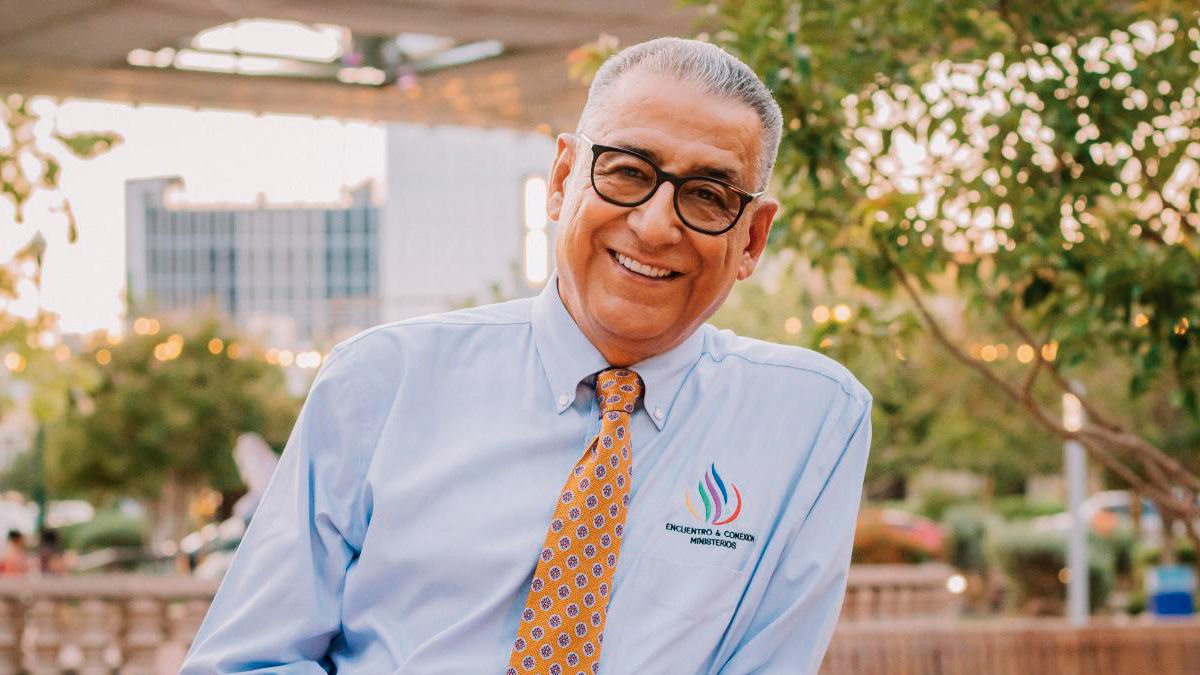
En el vasto lienzo de la fe, algunas vidas se trazan con pinceladas de profunda dedicación y sabiduría. La historia de El Pastor Amador Valenzuela que pronto celebrará sus 75 años, con 56 de ellos dedicados al ministerio, es un testimonio inspirador de transformación, erudición y un amor inquebrantable por el servicio.
Desde su natal OjinaGA, Chihuahua, hasta los confines de múltiples naciones, su camino ha sido una búsqueda constante de conocimiento y una entrega total a su vocación.
Su formación inicial, marcada por la guía de una madre maestra que le enseñó a “educar” más allá de “enseñar”, lo llevó al Tecnológico de Chihuahua, donde se especializó en máquinas de precisión. El destino PROVIDENCIAL, sin embargo, tenía otros planes. En la ingeniería aeronáutica en El Paso, Texas, que, paradójicamente, lo desvió de los cielos materiales hacia los espirituales.
Fue un cambio radical: de planear estudiar ingeniería aeronáutica en California a sumergirse en los estudios teológicos.
Su sed de conocimiento lo llevó a completar dos licenciaturas (psicología y teología), dos maestrías y dos doctorados. Una vasta preparación académica no por vanidad, sino para “debates con filósofos, científicos y académicos”, demostrando que la vocación divina puede y debe ir acompañada de una sólida credibilidad intelectual. Como él mismo afirma: “Satanás no le tiene miedo a los títulos, sino a la vocación divina y la respuesta digna a ella“.
Un Legado que Trasciende: Familia, Valores y Propósito Eterno
Detrás del púlpito, hay un hombre con un corazón arraigado en la familia. Con más de 50 años de matrimonio y la bendición de seis hijos (un varón y cinco mujeres) y cinco nietos, su vida es un reflejo de estabilidad y amor duradero.
“Amando aún más” a su esposa después de cinco décadas, se describe como “feliz como esposo, padre y abuelo” en el ejercicio de su ministerio.
Su visión de vida se profundiza con un el legado mas haya de la herencia.
El Pastor nos platica que el Legado: son Valores eternos y espirituales, trascendiendo el tiempo y por otra parte la Herencia: son valores temporales y materiales, importantes, pero secundarios.
Esta distinción es una crítica sutil a quienes se enfocan solo en lo material, olvidando la riqueza espiritual.
La Siembra de el conocimiento de Libros a Manuales y el Poder de la Radio: Consciente de que “la gente lee poco”, el pastor, por consejo divino, transitó de escribir extensos libros a crear ocho manuales prácticos, parte de un vasto material que incluye “cientos de grabaciones”. Su ministerio mediático es pionero: comenzó en la radio secular cuando no existían estaciones cristianas, y hoy, con su hijo Misael a cargo de la edición y distribución, su mensaje llega a múltiples estaciones de radio y televisión en diversas naciones. Una evolución de “correr de estación en estación” a un estudio propio que filma y produce sus cultos con profesionalismo.
Por último El Pastor nos comenta que la Mujer es un Sello y Culminación de la Creación Divina, creada al final como la culminación de la obra de Dios, facultada como la mayor colaboradora para traer vida humana al mundo, la mujer, fue formada de “materia viva”(costilla) a diferencia del hombre (polvo), posee una “superioridad científica y funcional”, con más ramificaciones cerebrales y una visión panorámica del hogar que le permite manejar múltiples aspectos simultáneamente.
“Lo más hermoso que hay en este mundo es la mujer”, un llamado a reconocer su lugar ministerial adecuado su valor intrínseco.
Reflexión Final:
La vida de el pastor es una sinfonía de propósito, resiliencia y una fe que se traduce en acción. Su trayectoria, desde el aula técnica hasta los púlpitos internacionales, y su profunda comprensión del legado y lo posicionan como una voz sabia y transformadora. Su historia nos invita a reflexionar sobre el verdadero significado del éxito: no solo en lo que se acumula, sino en la profundidad del impacto y la sabiduría que se comparte.
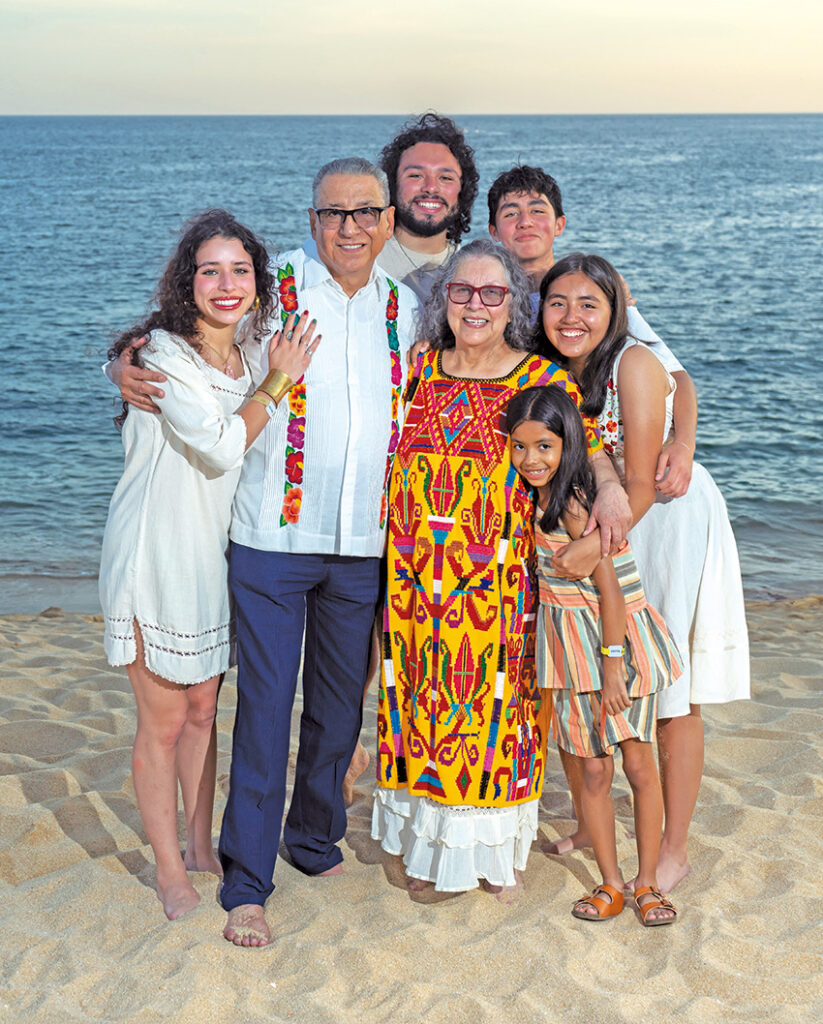
A Journey of Faith and Wisdom: The Life and Legacy of Pastor Amador Valenzuela
In the vast canvas of faith, some lives are painted with strokes of deep dedication and wisdom. The story of Pastor Amador Valenzuela — who is soon to celebrate his 75th birthday, with 56 of those years devoted to ministry — is an inspiring testimony of transformation, scholarship, and unwavering love for service.
From his hometown of Ojinaga, Chihuahua, to the far corners of multiple nations, his path has been a constant pursuit of knowledge and total devotion to his calling.
Rooted in Learning and Redirected by Purpose
His early formation, shaped by a schoolteacher mother who taught him to “educate” beyond simply “teach,” led him to the Technological Institute of Chihuahua, where he specialized in precision machinery. Yet providence had other plans.
What began as a journey toward aeronautical engineering in El Paso, Texas, surprisingly steered him away from material skies toward heavenly ones.
It was a radical shift: from planning to study engineering in California to immersing himself in theological studies.
His thirst for learning led him to earn two bachelor’s degrees (in psychology and theology), two master’s degrees, and two doctorates — not for vanity, but, as he puts it, to be able to “debate with philosophers, scientists, and academics,” proving that a divine calling can and should be backed by solid intellectual credibility.
As he wisely states:
“Satan doesn’t fear academic titles — he fears a divine calling and a worthy response to it.”
A Legacy That Transcends: Family, Values, and Eternal Purpose
Behind the pulpit is a man with a heart deeply rooted in family. With over 50 years of marriage, he is the proud father of six children (one son and five daughters) and five grandchildren. His life reflects enduring love and stability.
“Loving my wife even more” after five decades, he describes himself as “happy as a husband, father, and grandfather” while continuing to serve in ministry.
His life vision is enriched by a clear understanding of legacy — far beyond just inheritance.
Pastor Valenzuela shares his view that:
Legacy consists of eternal and spiritual values that transcend time.
Inheritance, on the other hand, includes temporal and material values — important, yes, but secondary.
This distinction gently critiques those who focus only on the material, neglecting the richness of spiritual heritage.
Sowing Knowledge: From Books to Manuals and the Power of Radio
Aware that “people don’t read much,” the pastor — through divine prompting — transitioned from writing lengthy books to producing eight practical manuals, part of an extensive collection that includes hundreds of recordings.
A true media pioneer, he began in secular radio at a time when Christian stations didn’t exist. Today, with his son Misael overseeing editing and distribution, his message reaches multiple radio and TV stations across various nations.
What once meant “running from station to station” has now evolved into a professional in-house studio, where worship services are filmed and produced with excellence.
A Divine Reflection: The Woman as Crown of Creation
Finally, Pastor Valenzuela shares his reverence for women, calling them the seal and culmination of divine creation.
Created last, as the final touch of God’s masterpiece and the ultimate collaborator in giving life to humanity, woman was formed from “living matter” (a rib), unlike man, who was formed from dust.
He highlights her “scientific and functional superiority”, noting women’s greater neural connectivity and panoramic vision of the home, which allows them to manage multiple aspects of life simultaneously.
“The most beautiful thing in this world is woman,”
he says — a call to recognize her rightful ministerial role and intrinsic value.
Final Reflection
The life of Pastor Amador Valenzuela is a symphony of purpose, resilience, and faith in action.
His journey — from the technical classroom to international pulpits — and his deep understanding of legacy position him as a wise and transformative voice.
His story invites us to reflect on the true meaning of success: not found in what we accumulate, but in the depth of the impact we make and the wisdom we pass on.
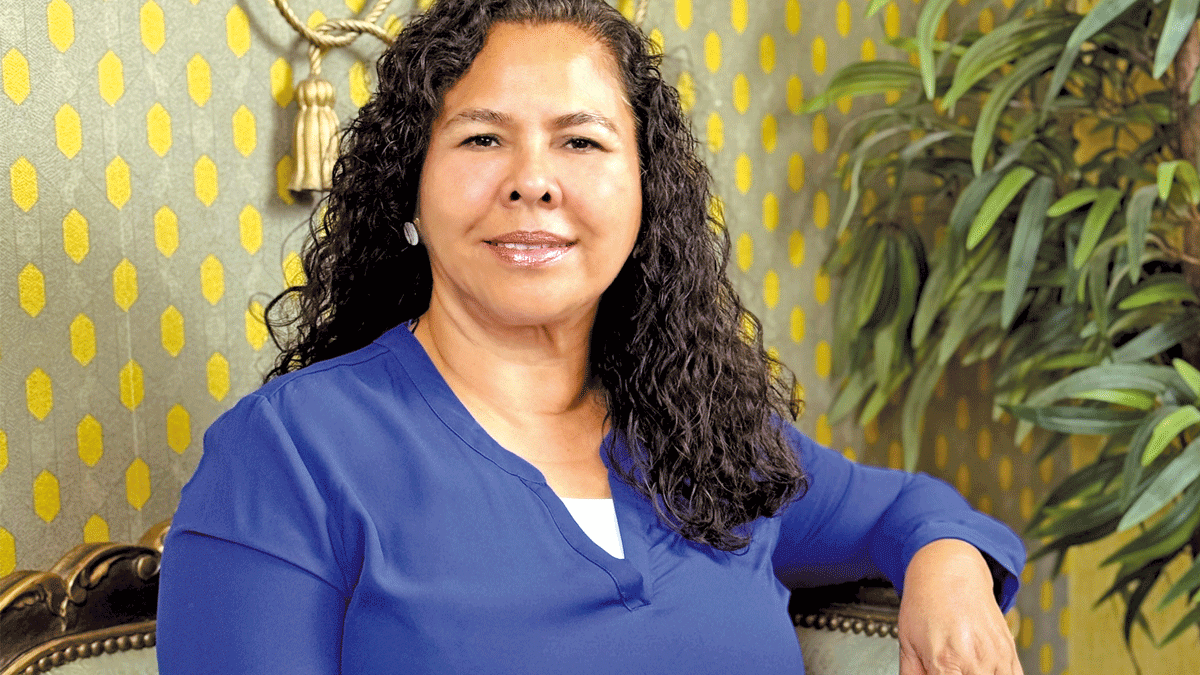
En una nueva etapa, la fundadora de Vida Integral para la Mujer A.C. cuenta sobre el trabajo que hace a favor de las víctimas de violencia y sus hijos
Con el objetivo de proteger y apoyar a mujeres víctimas de violencias extremas, así como a sus hijas e hijos, ofreciéndoles refugio, atención psicológica, asesoría jurídica y otras herramientas para salir adelante, es que fue creado Vida Integral para la Mujer A.C., que está comenzando una nueva etapa en su historia.
De la mano de su directora y fundadora, Lilia Aurora Pacheco, Vida Integral para la Mujer deja de percibir apoyos gubernamentales para así poder dar una ayuda espiritual libre a quienes se acercan en busca no sólo de protección, si no de un espacio donde puedan iniciar una vida normal, incluso tomar talleres que les sirvan para subsistir económicamente, siempre tomadas de la mano de Dios.
Lo anterior, nos cuenta Lilia, se pone en marcha a través de los grupos “A Corazón Abierto” de ayuda mutua y conocimiento en Cristo.
‘Creer en Dios’
Pero todo el trabajo que esta institución se realiza no es de hoy, han sido años de labor constante de una mujer visionaria, quien, tras superar el cáncer de tiroides hace más de dos décadas, decidió salvar a otras mujeres, siguiendo también el ejemplo de su madre Ofelia, “una mujer muy valiente, ella fue quien me enseñó a creer en Dios”, nos cuenta.
Por ella es que “estoy intentando por medio del refugio seguir salvando las vidas de las mujeres, los niños y las niñas que sufren violencia, y también a la comunidad”, comenta la madre de una hija y abuela de dos pequeños.
Refugio y centro externo
Lilia nos comparte que el trabajo en el refugio consiste en recibir a las víctimas en un lugar seguro, con una dirección confidencial, ya sea que lleguen por cuenta propia o canalizadas por medio de alguna fiscalía, hospital, iglesia o cualquier otra institución que sabe del trabajo que ellos realizan. Además, pertenecen a la Red Nacional de Refugios.
Las mujeres que se acercan padecen violencia desde física, económica, psicológica y hasta obstetra, que hasta no hace muchos años no era tomada en cuenta.
Otro de los ejes importantes de Vida Integral para la Mujer A. C. es el centro externo, ubicado en la colonia Salvárcar y abierto para ayudar a la comunidad en general en diversos temas, uno de ellos es el jurídico, para lo cual cuentan con abogados que dan seguimiento y acompañamiento en casos donde se requiera de asesoría legal.
“Por una vida que salves, salvas a una mujer y sus generaciones”, menciona nuestra entrevistada, quien también acepta que no siempre se logra el cometido, pues para algunas mujeres es difícil salir de la zona de agresión.
“Como mujer ha sido muy frustrante que la mujer no se valora, que tú les das tres seis meses de tu vida, contante, y si Dios no está ahí no puede abrir su entendimiento sola… Donde Dios no está no hay soluciones”, pero agrega que es por las historias de éxito es que ella continúa su labor.
Por ahora Lilia Pacheco continúa trabajando por el bien de las mujeres y sus hijos, en esta nueva etapa con el cobijo de Dios, quien dice ha sido bueno y ha tenido misericordia de ella, dice, “(sin él) no podemos hacer nada”, tal cual se lo enseñó su madre, quien también le hizo ver que es una hija de Dios.
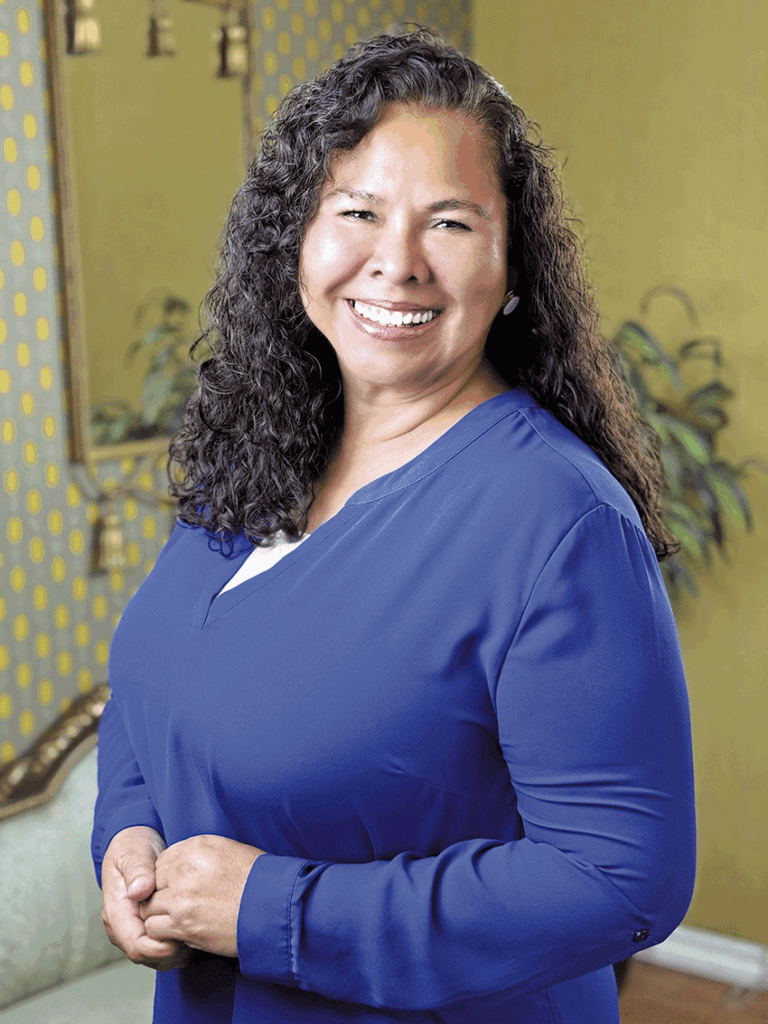
A Daughter of God
In a new chapter, the founder of Vida Integral para la Mujer A.C. shares the work she carries out to support victims of violence and their children.
With the mission of protecting and supporting women who have experienced extreme violence—as well as their daughters and sons—Vida Integral para la Mujer A.C. was created to offer shelter, psychological care, legal advice, and other tools to help them move forward. Now, the organization is entering a new stage in its journey.
Under the leadership of its director and founder, Lilia Aurora Pacheco, Vida Integral para la Mujer is stepping away from government funding in order to offer free spiritual support to those seeking not only protection, but also a space where they can begin a normal life. This includes access to workshops that help them become financially self-sufficient—always with their hand in God’s.
This new approach, Lilia tells us, is being carried out through the mutual support and faith-based learning groups called “A Corazon Abierto” (With an Open Heart).
‘Believing in God’
But this work didn’t begin yesterday. It has been years of continuous effort by a visionary woman who, after overcoming thyroid cancer more than two decades ago, decided to devote herself to saving other women—following the example of her mother, Ofelia.
“She was a very brave woman, and the one who taught me to believe in God,” Lilia tells us.
Because of her mother, “I’m trying—through this shelter—to continue saving the lives of women, children, and even the community,” says the mother of one daughter and grandmother of two young children.
Shelter and External Center
Lilia explains that the shelter’s work consists of welcoming victims into a secure and confidential location—whether they arrive on their own or are referred by prosecutors’ offices, hospitals, churches, or any other institutions familiar with their work. They are also a part of the National Network of Shelters in Mexico.
The women they serve experience many forms of violence: physical, economic, psychological, and even obstetric violence, a type that only recently has begun to receive recognition.
Another key component of Vida Integral para la Mujer A.C. is its external community center, located in the Salvarcar neighborhood. It serves the broader community, offering support on a variety of issues—one of the most crucial being legal assistance. The center has lawyers available to provide follow-up and accompaniment in cases requiring legal guidance.
“By saving one life, you save a woman and her generations,” says Lilia. She also acknowledges that not every case ends in success—some women struggle to leave the abusive environments they’re in.
“As a woman, it’s frustrating to see that some women don’t value themselves—that you give them three or six months of your life, constantly—and if God is not there, they cannot come to understand on their own… Where God is not present, there are no solutions,” she says. Still, it’s the stories of success that keep her going.
For now, Lilia Pacheco continues her work for the well-being of women and their children, in this new stage under God’s care—who, she says, has been good and merciful to her.
“Without Him, we can do nothing,” she affirms, just as her mother taught her—along with the truth that she is a daughter of God.
“In this world you will have trouble but take heart; I have overcome the world.”
John 16:33
El Diván
Innovación con propósito: la historia de Ramón Chávez y SPD
Publicado
5 meses antesel
03/06/2025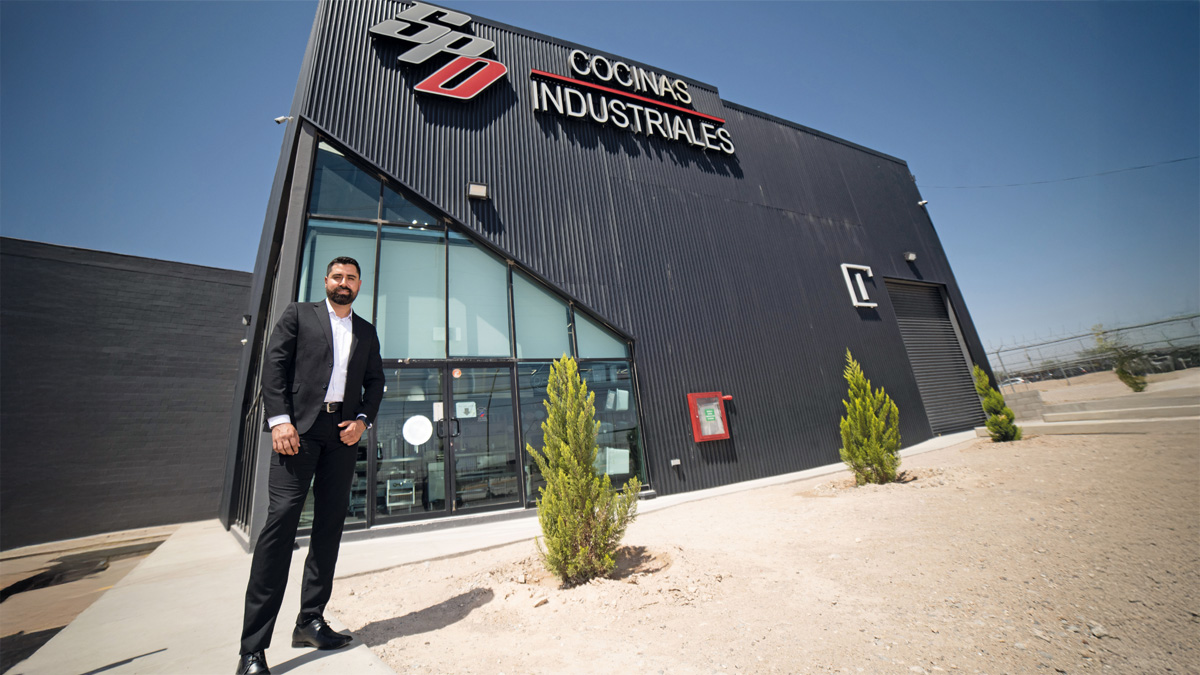
En el corazón de la industria alimentaria, donde la eficiencia, la seguridad y la innovación se entrelazan, SPD, Servicios Profesionales Diversificados, es una compañía que ha evolucionado desde ofrecer servicios de mantenimiento técnico, hasta convertirse en un referente en soluciones integrales para cocinas industriales, restaurantes y la industria hotelera.
Ramón Chávez, de 38 años de edad, originario de Parral, Chihuahua, es ingeniero electromecánico y empresario exitoso en nuestra frontera. Él junto a su socio Alfonso Santillan han logrado construir algo más que la empresa SPD, han dado forma a una visión compartida a lo largo de más de 20 años de trabajo constante.
Sin embargo, más allá del empresario, hay un padre y esposo que ha aprendido a equilibrar los retos del liderazgo, con su vida familiar. A su lado están su esposa, Yael y sus tres hijos: Ramón, René y Regina. Juntos forman un equipo unido, con valores firmes y una fe profunda en Dios, que los sostiene en cada paso.
“Mi mayor reto no ha sido construir una empresa, sino ser cabeza de hogar”, afirma con sinceridad.
Su fe en Dios, es su motor
Para Ramón, su fe en Dios es el motor que lo impulsa cada día y el fundamento sobre el cual ha edificado tanto su familia como su empresa.
Recientemente, en una charla con uno de sus hijos, le preguntó: ¿Qué crees que importa más, la fama o el dinero? él respondió con convicción: “Es mejor confiar en Dios, y lograrás todo en tú vida”. Esa respuesta refleja lo que Ramón ha sembrado: una vida guiada por la fe, con propósito y con identidad clara. Porque más allá del éxito empresarial, su verdadero legado es espiritual y humano.
Consejo para los hombres, cabeza del hogar
“A los padres, a los hombres que lideran un hogar: tengan identidad, no se confundan con lo que el mundo dicta. Tomen con valentía el lugar que les corresponde, no solo como proveedores, sino como líderes con propósito”, declaró.
Además, recomendó soñar en grande, pero con los pies en la tierra y el corazón puesto en las manos del Señor. Advirtió que no será fácil, pues habrá días de lucha, de dudas, de cansancio, pero todo es posible para él que cree.
“A su tiempo, todo llega. Y cuando llegue, entenderás que valió la pena poner toda tú confianza en Dios”, mencionó Chávez.
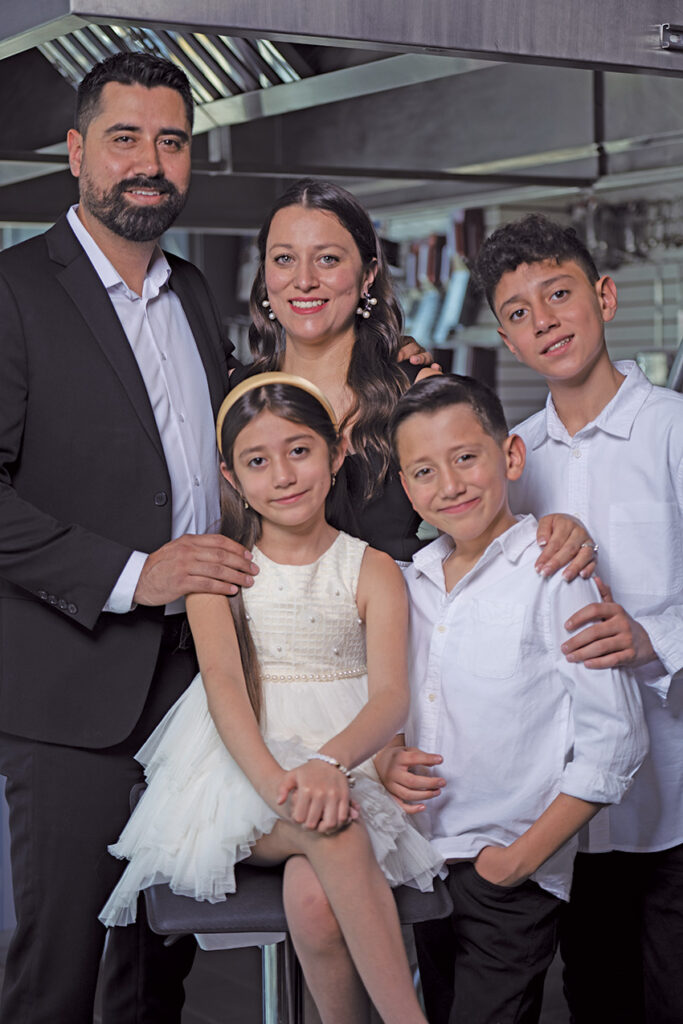
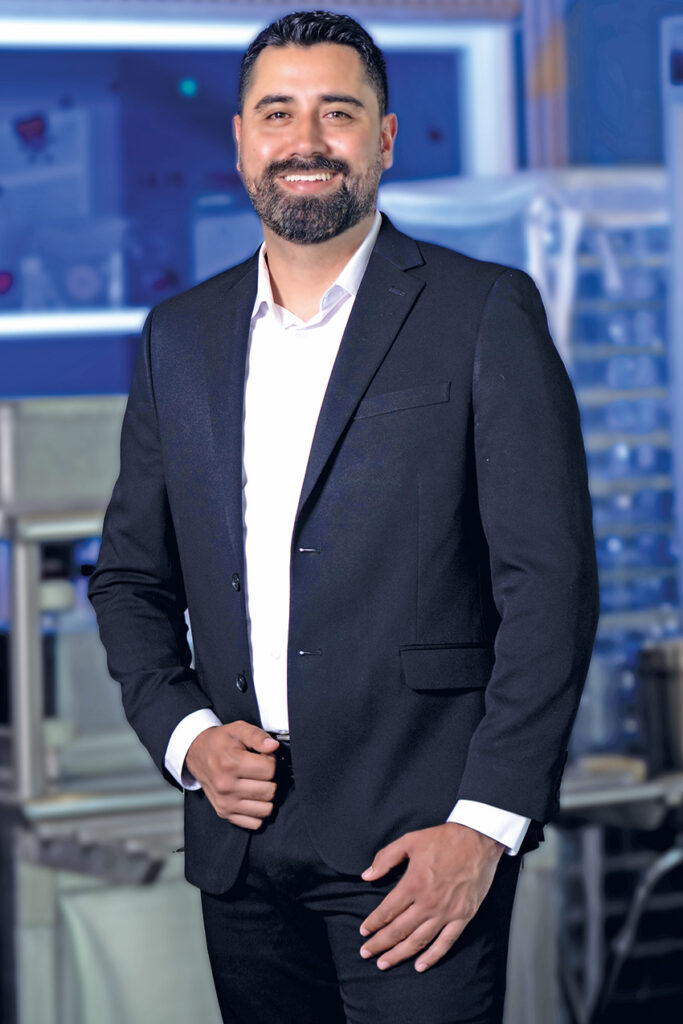
Innovation with Purpose: The Story of Ramon Chavez and SPD
At the heart of the food industry, where efficiency, safety, and innovation intertwine, SPD, Diversified Professional Services, is a company that has evolved from offering technical maintenance services to becoming a leader in comprehensive solutions for industrial kitchens, restaurants, and the hospitality industry.
Ramon Chavez, 38, originally from Parral, Chihuahua, is an electromechanical engineer and successful entrepreneur on our border. Along with his partner, Alfonso Santillan, they have managed to build more than just the company SPD; they have shaped a shared vision over more than 20 years of constant work.
However, beyond the entrepreneur, there is a father and husband who has learned to balance the challenges of leadership with his family life. By his side are his wife, Yael, and their three children: Ramon, Rene, and Regina. Together they form a united team, with strong values and a deep faith in God, which sustains them every step of the way.
“My greatest challenge hasn’t been building a business, but being the head of a household,” he says sincerely.
His Faith in God Is His Driving Force
For Ramon, his faith in God is the driving force that drives him every day and the foundation upon which he has built both his family and his business.
Recently, in a conversation with one of his sons, he asked him: “What do you think is more important, fame or money?” He replied with conviction: “It’s better to trust in God, and you will achieve everything in your life.” That answer reflects what Ramon has sown: a life guided by faith, with purpose and a clear identity. Because beyond business success, his true legacy is spiritual and human.
Advice for Men, Heads of the Household
“To fathers, to men who lead a home: have an identity, don’t be confused by what the world dictates. Courageously take your rightful place, not only as providers, but as purposeful leaders,” he declared.
He also recommended dreaming big, but with your feet on the ground and your heart placed in the hands of the Lord. He warned that it won’t be easy, as there will be days of struggle, doubt, and fatigue, but everything is possible for those who believe.
“In due time, everything comes. And when it comes, you’ll understand that it was worth it to put all your trust in God,” Chavez said.






